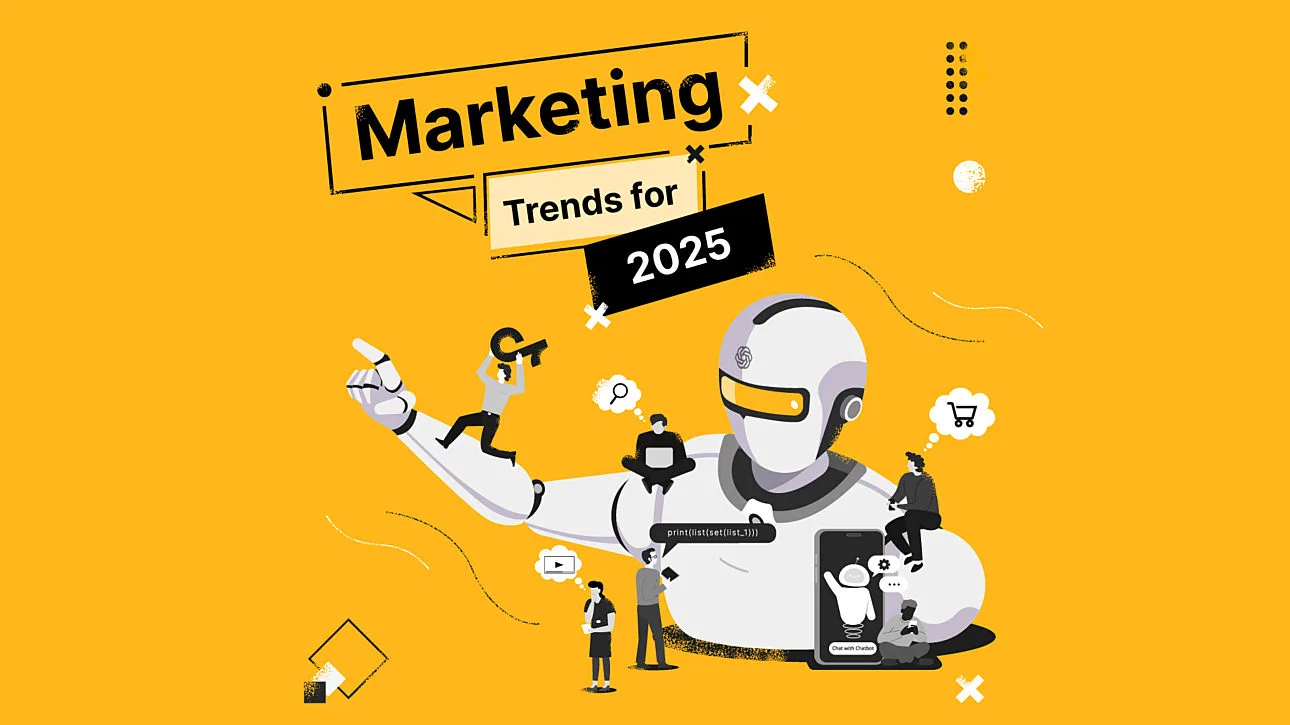
Blog
2025 Marketing Trends: What Will Matter Most?
As we move through 2025, the marketing landscape continues to evolve, driven by technological advances, changing consumer expectations, and broader economic and cultural shifts. To remain competitive, brands should think about embracing the following key trends shaping the industry:
1. The Ascendancy of Artificial Intelligence (AI)
AI remains at the forefront of marketing innovation, enabling hyper-personalised consumer experiences. Advanced algorithms now analyse vast datasets to predict consumer behaviours, allowing brands to deliver highly targeted content and offers. This shift not only enhances customer satisfaction but also optimises efficiency, helping marketers do more with less.
2. The Evolution of Social Media Platforms
The social media landscape is undergoing significant change, with platforms like TikTok facing regulatory challenges in some regions. Such uncertainties highlight the need for brands to diversify their social media strategies. Exploring emerging platforms and adopting a multi-channel approach ensures resilience against platform-specific disruptions, safeguarding audience engagement.
3. Emphasis on Authenticity and Trust
In an era of digital overload, authenticity has become a cornerstone of effective marketing. With consumers increasingly sceptical of fake reviews and AI-generated content, brands must prioritise transparency and genuine engagement.
Building trust requires consistency in messaging and a commitment to ethical practices.
4. Integration of AI in Marketing and Sales
The integration of AI into marketing and sales processes is accelerating, enabling businesses to enhance targeting, personalise communication, and make data-driven decisions. Startups in this space are attracting significant investment, reflecting the potential for AI to streamline operations and improve marketing effectiveness.
For marketers, this means leveraging AI tools not just for efficiency but also for creating highly personalised, impactful customer journeys.
5. Personalised Shopping Experiences
Technology continues to transform retail, with brands using advanced tools to deliver bespoke shopping experiences. From body scanners for precise measurements to AI-driven recommendations, the focus is on catering to individual preferences.
Consumers now expect these personalised touches, whether online or in-store, making them a key differentiator for brands aiming to stand out.
6. The Role of AI in Advertising
AI is set to redefine advertising, taking on roles traditionally held by humans, such as media planning and buying. As AI automates these processes, agencies will pivot to become content validators, ensuring that AI-generated ads align with brand values and resonate with target audiences.
This shift underscores the growing importance of human oversight in maintaining brand integrity, even as automation takes centre stage.
7. The Luxury Market’s Strategic Shift
The luxury sector is adapting to a more challenging market by maintaining its marketing investments while evolving its strategies. Brands are focusing on appealing to an affluent, intergenerational audience by highlighting high-quality craftsmanship and sustainability.
This approach not only caters to consumer demand for ethical and enduring products but also reinforces brand heritage and exclusivity.
If your brand is ready to navigate the challenges and opportunities of this evolving landscape, let’s work together to create campaigns that resonate and deliver lasting impact. Let’s Talk.
